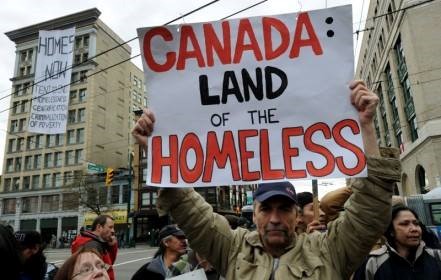Scarcity, Precarity, and the Untenable Living Conditions of Our First Nations in the North
It is not without hesitation that I use the term “third world”—a term long fallen out of favour. In the next few lines, I hope to prove that my choice was justified.
Dirty floors, little, if any, access to healthcare, and food staples priced out of reach. This is the reality for many rural Aboriginal communities in Canada—and yes, even in the “have” province of Ontario.
Food prices are reminiscent of post-WWI Germany when inflation was at its highest. A head of cabbage—which in Toronto can cost two dollars—can be marked at twenty-eight dollars. Milk, bread, eggs, canned goods, diapers, baby formula, and all the other basics required for human sustenance are simply too expensive for Aboriginal families living in the North.
There is a food security crisis in the North. Fresh fruits and vegetables as well as healthier options for grains, meat, poultry, and fish are far too expensive for families already living near or below the poverty line. What they can afford is mostly processed food, which does not offer much in the way of nutritional value. Children cannot be expected to learn and be active if what they are fed is full of sodium, sugar, fat, and chemicals. Expectant mothers cannot ensure their unborn children are developing properly if they themselves are not receiving proper nutrition. Elderly people whose immune systems are weaker are also at greater risk if they cannot access healthful foods.
A recent report by the Auditor General of Canada delivered a scathing review of the federal government’s food subsidy program. Government cuts and seemingly arbitrary eligibility criteria are some of the problems noted in the report.
The impact of this crisis is felt far beyond the dinner tables of these families. Aboriginal people—especially in rural Northern communities—are at greater risk for diabetes, heart disease, and other chronic illnesses. Since there is also a scarcity of medical professionals in the North—and Aboriginal people often avoid seeking medical attention due to discrimination—the problem is compounded. Seeking medical attention for more serious conditions which have already progressed is detrimental to an individual’s health and is more costly for the health care system.
I am proud of the excellent humanitarian work Canada has done across the globe. We have been on the ground, responding to nearly every major humanitarian crisis over the last several decades. We have sent medical supplies, food, shelter, water purification kits, and teams of military personnel and volunteers to lend a helping hand. We do not wait for the call but, rather, readily offer our assistance. It is precisely because of our enormous capacity and overall generous Canadian spirit that I am troubled by the crisis unfolding in our very own backyard.
Aboriginal people have for too long been subject to unjust laws, profiling at the hands of police and our judicial system, denied treaty rights, and ignored when their interests seem to be at odds with those of the government. Over-represented in our prisons, under-represented on our juries, and more frequently the victims of sexual assault and other forms of gender-based violence, Aboriginal people have been failed by our system. Poverty lies at the heart of many of these problems; accordingly, ameliorating their situation will go a long way in resolving some of these systemic issues.
This will cost money. It will necessitate tremendous political will, cooperation from the private sector, and the kindness and generosity of private individuals. Cost alone cannot be determinative. It is morally wrong to do nothing because doing nothing is tantamount to allowing these communities to starve to death.
As community leaders, lawyers, and law students we must advocate for policy change while also aiding efforts on the ground. If we are serious about reconciliation, we can start by making sure that Aboriginal families are able to access the basic necessities of life.
